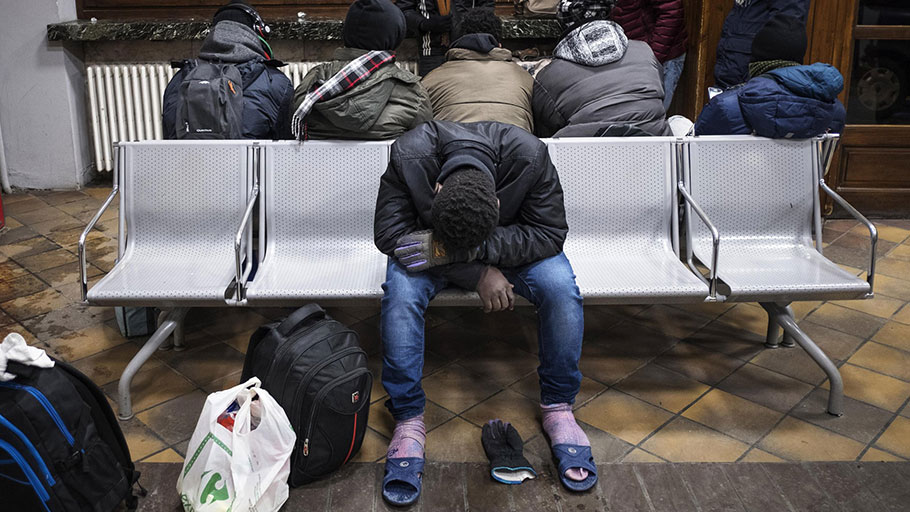Seventy percent of people of African descent stopped by police in Italy saw that action as racially-motivated.
Almost a third of people of African descent have experienced racial harassment in past five years, survey finds.
By Jennifer Rankin, The Guardian —
Almost a third of people of African descent polled in a new EU survey say they have experienced racial harassment in the last five years, a report that claims racial discrimination is “commonplace” across 12 European countries reveals.
People of African descent face “a dire picture” of discrimination in housing, the workplace and everyday life, the survey of 5,803 people by the European Union’s fundamental rights agency states.
Perceived racial harassment, such as offensive gestures, comments or threats, was highest in Finland (63%) and Luxembourg (52%) and least prevalent in the UK (21%) and Malta (20%).
One in 20 respondents said they had been a victim of a physical attack in the last five years, ranging from 14% in Finland to 2% in Portugal. The figure was 3% for the UK.
“The survey paints a dire picture of the reality on the ground,” said the agency’s director, Michael O’Flaherty, in a preface to the report. Referring to the EU’s 2000 racial equality directive, he said: “Almost 20 years after adoption of EU laws forbidding discrimination, people of African descent face widespread and entrenched prejudice and exclusion.”
O’Flaherty wrote that: “Racial discrimination and harassment are commonplace,” adding that discriminatory profiling by the police is “a common reality”.
Most people who took the survey were first and second-generation immigrants, who come from, or have at least one parent from a sub-Saharan African country. The study also includes people from British and French overseas territories, including the Caribbean.
It does not, however, include black Europeans whose families have been settled in Europe for three or more generations, because most EU countries do not collect such data – a gap the agency is urging governments to remedy.
“We do not claim that we represent the experience of all black people in the European Union,” said Rossalina Latcheva, one of the report’s authors. The agency was convinced, she said, that “these results are indicative for experiences of different people of African descent also from third or fourth generation, fifth generation”.
The report will be launched in the European parliament on Wednesday at an event hosted by the Italian politician Cécile Kyenge, one of only three blackMEPs in the 751-strong assembly. The MEP has argued that the EU has a gap in its equality strategy and has drafted a non-binding resolution to promote equality for an estimated 15 million people of African descent in the EU. Her text will be voted on next week.
The latest survey lays bare the extent of the task. One in 10 respondents said that racial discrimination had stopped them from renting an apartment or house, with a wide variation between countries: 37% reported this experience in Italy and 28% in Luxembourg, compared with 3% in the UK.
In the labour market, people of African descent with a degree were almost twice as likely to work in low-skill occupations than the general population.
Being stopped by the police was also a big concern. One in 10 respondents said they had been stopped by the police in the year before the survey. Nearly half of those people saw that action as racially motivated, but this rose to 70% in Italy. While a majority of respondents trusted the police, trust fell when police stops were deemed to be racially targeted.
The agency said one “particularly unsettling finding” was that younger people tended to report worse discrimination than older respondents.
Muslim women of African descent wearing a headscarf or face veil also reported discrimination in the year before the survey: 27% said they had experienced inappropriate staring or offensive gestures, while 15% reported verbal assaults and 2% said they had been victims of physical attacks.















